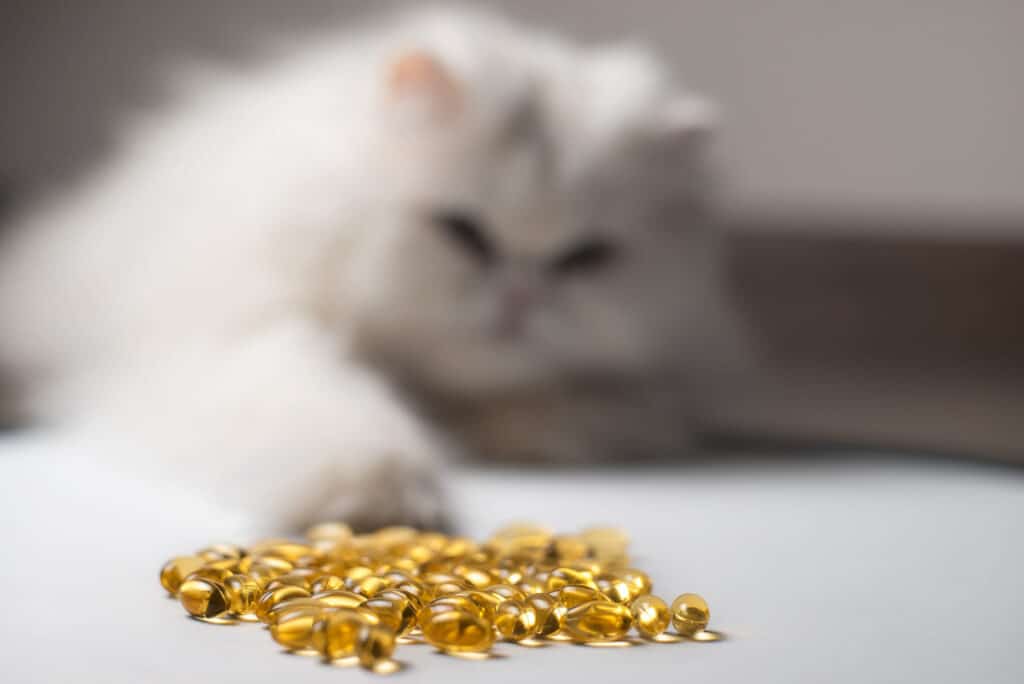Fish oils contain omega-3 fatty acids that are essential to your cat’s health. Fish oils for cats are anti-inflammatory agents that play a big role in the growth and development of your cat. They’re also key in cardiovascular health and reducing blood pressure in your cat.
What is Fish Oil?
Fish oil is extracted from freshwater fish like salmon, pollock, tuna and trout. It has two essential omega-3 fatty acids, Eicosapentaenoic acid (EPA) and Docosahexaenoic acid (DHA). These oils are called “essential” because your cat’s body cannot make them; they must get them from their diet.
Why Do Cats Need Fish Oil?
Fish oil, containing omega-3 fatty acids, are important to the health of your cat. These oils are powerful anti-inflammatory agents and play a key role in heart health and regulating blood pressure. Not only that, but they prevent arthritis and relieve skin irritation. Because of their inflammatory properties, fish oils can also be a great pain receiver.
Cats’ brains are 60% fat, and fish oils help maintain the health of the brain and nervous system. Kitten growth and development depends heavily on having enough of these omega-3 fatty acids. Some vets will even recommend supplementing kittens with fish oils to help cognitive growth and brain development.
Studies have shown that older cats are more likely to experience cognitive decline and dementia if they’re deficient in fish oils. Additionally, fish oils have been shown to slow cancer and tumor growth in cats.
Can Cats Have Too Much Fish Oil?
Although consuming too much fish oil isn’t hazardous to your cat’s health, they can still experience some negative side effects. Some of the side effects of too much fish oil are:
- Fishy odor on the skin or breath
- Tummy discomfort
- Oily, flaky skin
Fish Oil Supplements for Your Cat
Since fish oil is so important in the growth, development, and overall health of your cat, you may want to consider supplementing. Fish oil for cats can be purchased in liquid or capsule form. Refer to the container on which dose to give your cat.
Fish oils break down quickly, especially when exposed to heat and light. Make sure to read the supplement packaging on how long the product is good for.
Many brands of wet cat food either add or naturally contain omega-3 fatty acids. However, if you only feed your cat dry food or make your own cat food at home, your cat might not be getting enough fish oils. Supplements are an affordable and easy way to clear this gap.
When in doubt, your doctor can make the best recommendations on your cat’s nutrient needs.
Symptoms of Fish Oil Deficiency
Some signs of a fish oil deficiency are:
- High blood pressure
- Arthritis
- Pain
- Dry, flaky skin
- Dull coat
If you’re ever concerned whether your cat is showing symptoms of something worse than a fish oil deficiency, you may need to see a vet.














